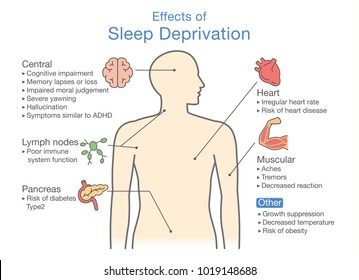Relationship of sleep to Learning and Memory
Sleep Loss and Temporal Memory
 |
| Sleep Loss |
Verifiable proof recommends that lack of sleep influences transient memory, yet this has not been concentrated deliberately. We investigated the impacts of 36 hr of lack of sleep on a neuropsychological trial of worldly memory. To advance ideal execution, the test was short, novel, and fascinating, and caffeine was utilized to diminish "lethargy". A sum of 40 youthful grown-ups were randomized into four gatherings: control + caffeine (Cc), control + fake treatment (Cp), restless + caffeine (SDc), and restless + fake treatment (SDp). Controls dozed ordinarily. Caffeine (350 mg) or fake treatment were given only preceding testing. The undertaking involved shading photos of obscure faces and had two parts: acknowledgment memory (differentiation between recently introduced and novel countenances), and recency segregation (transient memory), when a formerly indicated face was introduced. An added task, self-requested pointing, went about as an interruption. Caffeine included no impacts inside control conditions, yet fundamentally decreased abstract sluggishness in SDc. Acknowledgment was unaffected by lack of sleep, though for recency, lack of sleep bunches scored altogether lower than controls. There was no noteworthy improvement of recency with caffeine in the SDc gathering. Both lack of sleep bunches had more unfortunate understanding into their exhibition with recency. Self-requested pointing stayed unaltered. All in all, lack of sleep disables transient memory (for example recency) regardless of different conditions advancing ideal execution.
Sleep Dependent Memory Processing
 |
While the elements of rest remain generally obscure, one energizing speculation is that rest contributes critically to procedures of memory and cerebrum versatility. In the course of the most recent decade, an enormous collection of work has given considerable proof supporting this job of rest in what is getting known as rest subordinate memory handling. This audit offers a synopsis of these information, concentrating explicitly on the job of stay in bed (1) memory encoding, (2) memory combination (alongside the mind premise of this procedure), and (3) neural pliancy. The clinical implications of such discoveries are additionally investigated.
Sleep Habits and Pattern of Students
 |
| Sleep Habit of Student |
The negative impacts of rest challenges have been very much archived. Be that as it may, the pervasiveness of such issues among US undergrads has not been very much contemplated. Plan challenges are regular in the set number of existing examinations, making it hard to gauges the commonness and sorts of unsettling influence considered. The creators depict the utilization of a quantitative-based evaluation instrument to give an underlying sign of understudies' rest issues and to fill in as a methods for tending to a portion of the lacks in the writing. In their example of 191 students at a provincial southern college, they found that the majority of the understudies showed some type of rest unsettling influence and that ladies, when all is said in done, announced more rest aggravations than men. They propose how schools and college authorities can modify methods to limit understudies" rest aggravations and diminish the harmful impacts of rest issues on scholarly execution.
How Sleep Deprivation Affects Psychological Variable Related to Student
 |
| Effect of Sleep Deprivation |
The impacts of lack of sleep on subjective execution and on mental factors identified with psychological execution were concentrated in 44 undergrads. Members finished the Watson-Glaser Critical Thinking Appraisal after either 24 hours of lack of sleep or roughly 8 hours of rest. In the wake of finishing the subjective errand, the members finished 2 polls, one surveying self-detailed exertion, focus, and evaluated execution, the other evaluating off-task insights. True to form, restless members performed fundamentally more awful than the non deprived members on the intellectual undertaking. Be that as it may, the restless members evaluated their focus and exertion higher than the non deprived members did. What's more, the restless members appraised their evaluated presentation essentially higher than the non deprived members did. The discoveries demonstrate that undergrads don't know about the degree to which lack of sleep contrarily influences their capacity to finish psychological assignments.
0 Comments